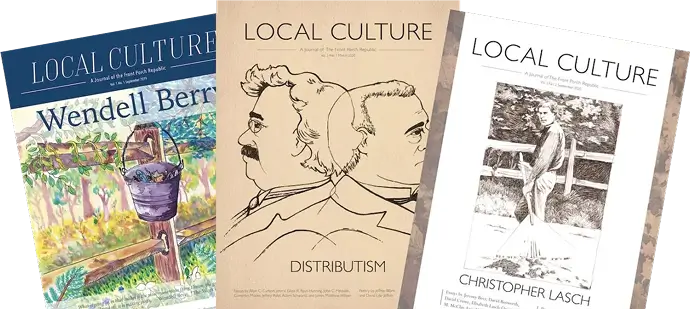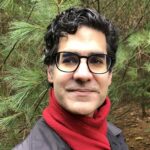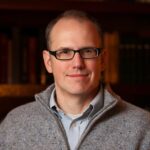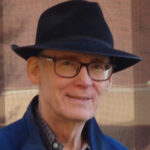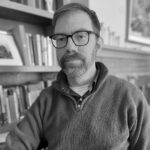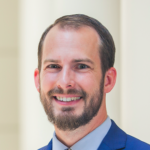The Blackboard 102
A Renaissance is Upon Us
In this piece, I turn from the abstract idea of the marriage between the outer world of work and the inner world of the spirit to centers of education that…
Craft and Theology: The Renaissance
It almost feels heretical to say that at the center of our religion, indeed our existence, is a God that can be wounded and broken, but this is precisely the…
The Art(s) of Liberation
None of us gets to choose where we land. But if we cannot choose the times in which we live, we can choose how we live in the time we…
The College Diploma Shakedown
The aim is to get young people, of all backgrounds and races, on their feet with as little fuss and expense as we can, regardless of whether their families can…
An Empty Room of One’s Own
There are things that a full room can do for us. It can reassure us. It can offer comfort. It can offer luxury and pleasant distractions. A full room can…
Why Pursue an Education?
The course I am teaching is part of the university’s core curriculum. Core comes from the Latin word for “heart,” I told my students. The same Latin root, cor, gives…
Planting Our Flag in the Real World: Parents Take the Postman Pledge
Do real things together. Celebrate. Take delight in the world—together. Don’t feel compelled to broadcast your views about the dangers of technology. Let your life speak, but be prepared to…
Apocalypse Now: ChatGTP and the End of Education
The intrusion of AI-generated content into the university sphere is a strange kind of judgement, even an old-style apocalypse, whose real gift is neither its productive power nor the opportunity…
From Prison to Public School Mentoring
However, my role that day was not to frighten but inspire, as all the other mentors would do. My message was simple: I wanted these energetic students to know that…
Things I Learned in Intermediate Greek Class
Reading ancient languages requires slow and careful thinking and processing of a sort that we do not normally utilize in our pressure-cooker fast-consumer world.
A Twenty-First Century Agronomic University: The Maurin Academy
We use the experience of the JPII farm not only to learn and improve over time but to inform our audience of the realities and pitfalls of attempting this way…
A.I. Doesn’t Cause Cheating. Fear Does.
Front Royal, VA. How do you catch a cheater? This is the question that is plaguing the minds of college and high school faculty across the country this spring. No…
One Homeschool Year: A Local Story in Four Seasons
One learning outcome I had in mind for this academic year was to teach all students to close the bathroom door when using the facilities. Alas, we seem to have…
Composition as the Art of Loading Brush
Instead, we have the opportunity to spur students to true and healing composition through the exercise of creativity, precision, care, and nuance. The best analytical writing assignments in the future…
Learning through Language: Education and Electronic Media
The best educators (and the best educational institutions) will neither embrace nor eschew the electronic technologies that commercial forces wish to prevail in higher education; rather they will assess each…
Devotion to Whole Education: Booker T. Washington
I think, I know, that Washington exemplified a whole-hearted devotion to his students. He was concerned, as I am, to educate the whole person of the student, not merely to…
Education as Pilgrimage
"We seem to be born homesick, and that homesickness is meant to lead us into a life of pilgrimage.” Walker Percy Black Mountain, NC. Where are you going? At its…
A Dictionary of Dumb Ideas: Tradition vs. Convention
We should aim to conserve what is deepest and true, not just what happens to have immediately preceded the present. It should be the conservative’s task to reconnect the manner…
What I Learned in Grad School
Temperamentally and vocationally, I was in the wrong place. Yet I don’t regret a single day I spent there—not only because I met my wife, but because I learned to…
In Schooling as in Life, More Than Enough is Too Much
Being a teacher is a demanding job, whether in a college, school, or home setting. It requires tremendous energy, responsiveness, and mental flexibility. It requires that you, the teacher, also…
Centering Humanity in the Age of the Chatbot
Though the metaphor sounds alarmist, an unimaginable tsunami is barreling down on a complacent world. We may have time to adjust, who knows?
How Shall We Train Up A Child?: The View From One State
All education programs enculturate students. There is no neutrality here. The question is not whether education will form our students, but how they will be formed. Proverbs (22:6) says, “Train…
The Absurdity of Teaching
As we approach the new academic year, we, like Sisyphus, are condemned to roll the rock up the hill only for it to roll back down. However, this does not…
Planting and Tending the Lost Seeds of Learning
Donnelly’s scope of transformation may seem like an impossible undertaking, yet even if it is not possible for everyone to achieve the level of faith integration suggested here, anyone can…

